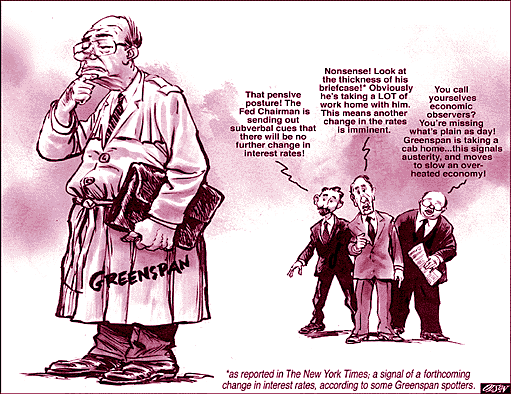Greenspan's - without a doubt - most important
position has been Chairman of the Board of Governors of the Federal Reserve
System (the "Fed") since 1987. His fourth four-year term will end in 2004. Greenspan
has served under five Presidents: Gerald Ford, Ronald Reagan, George Bush, Bill
Clinton and George W. Bush.
In his role as Chairman of the Federal
Reserve Board, Greenspan is a very well-known and important person. Surely
there is the danger that he could use his influence for unethical purposes.
The fall of Enron makes the public
suspicious of all economic leaders: Greenspan accepted the Enron Award for Distinguished
Public Service a few days after the Enron Scandal came to light and three weeks
after a call from the chairman of Enron who wanted Greenspan to help the company
survive. Greenspan accepted the prize but refused the $15,000 sculpture and
the $10,000 honorarium, because of his position on the Federal Reserve. The
advice Greenspan gave a student adds to his upstanding image in the media: "The
best chance you have of making a big success in this world is to decide from
square one that you're going to do it ethically."
